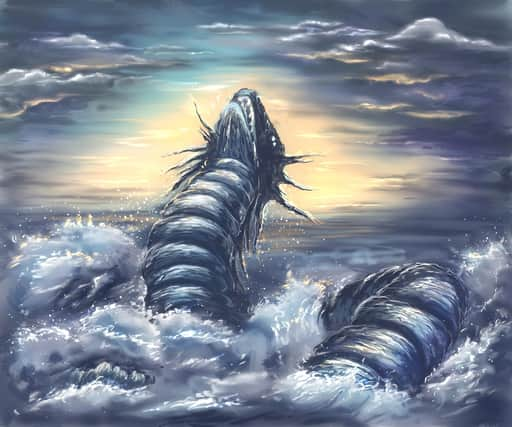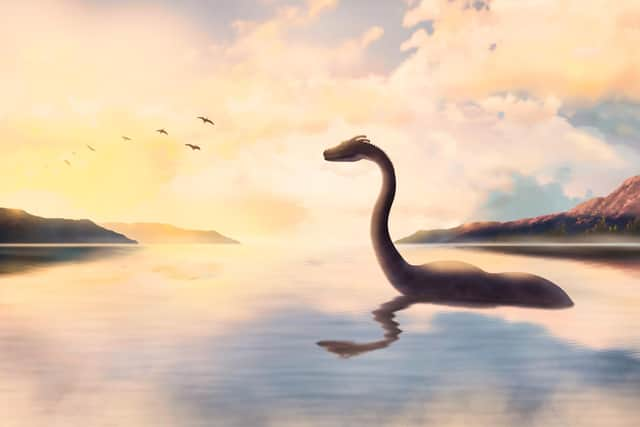Sea Serpent Day celebrates sightings of creatures of the deep


Sea serpents, also known as sea dragons, were prevalent in ancient myths. They were possibly inspired, in part, by the enormous oarfish, which may grow to be 50 feet long and are rarely seen because they dwell thousands of feet below the ocean’s surface.
Serpents are typically portrayed as dangerous monsters, as opposed to their so-called predecessor, the innocuous oarfish.
Advertisement
Hide AdAdvertisement
Hide AdDuring their voyage to Saint Helena in the South Atlantic in August 1848, men and officers aboard the HMS Daedalus reported witnessing a 60-foot-long creature poking its maned head and torso out of the water.


One can only imagine the awe and wonder they must have felt upon sighting such a creature.
Other stories have emerged over the years of equally incredible sightings.
Each story, unsurprisingly, presents different facts that often dispute other accounts. The stories, however, continue to spread.
Advertisement
Hide AdAdvertisement
Hide AdA sea serpent is a mythological and legendary aquatic beast that resembles a gigantic snake.
The belief in enormous sea animals was common across the ancient world. Large water species such as whales, sharks, and sea lions have, in many cases, been mistaken for sea serpents.
Cryptozoologists, on the other hand, believe that sea serpents are relict plesiosaurs, mosasaurs, or other Mesozoic marine reptiles.
Serpent sightings are the stuff of folklore. We may call them marine sirens.
Advertisement
Hide AdAdvertisement
Hide AdCetus is the name given to the sea creature in Greek mythology. The Kraken was mentioned by the Vikings.
We still believe beings serpents reside in the watery depths of our major lakes and waterways. Think the Loch Ness Monster … millions of words have been written about Nessie.
National sea serpent day timeline
384BC: Aristotle's Historia Animalium
In his book, Aristotle mentions an eyewitness who saw a sea serpent, which might be the earliest available account.
1848: Newspaper Articles
The sailors aboard the HMS Daedalus and HMS Plumper claim to have seen a sea serpent.
1880: A More Detailed Explanation
Advertisement
Hide AdAdvertisement
Hide AdPart of the fascination with sea monsters stems from the notion that science can now explain what had previously been myth and legend.
2015 Contentions by Gary J Galbreath
Galbreath releases his arguments to prove the sea serpent observed by HMS Daedalus was a sei baleen whale.
Sea serpents, according to legend, are hostile creatures that cannot be tamed. They attack by either blasting forceful jets of water beams or even fire.
They have fed the information of writers and film-makers for generations.
Advertisement
Hide AdAdvertisement
Hide AdJohn Wyndham – author of the Midwich Cuckoos and Day of the Triffids – puts a sea monster at the centre of The Kraken Wakes and Jules Verne created a creature in his 20,000 Leagues Under the Sea, which was also turned into a film.
We have already mentioned the Loch Ness Monster. It inspired the film Loch Ness which starred Ted Danson, a zoologist sent to a remote Scottish to dispel the myth of the existence of an underwater creature.
In Water Horse a lonely boy discovers a mysterious egg that hatches a sea creature – a Kelpie – of Scottish legend. The Mark Harmon film Magic in the Water sees a sea serpent bringing a dysfunctional family together.